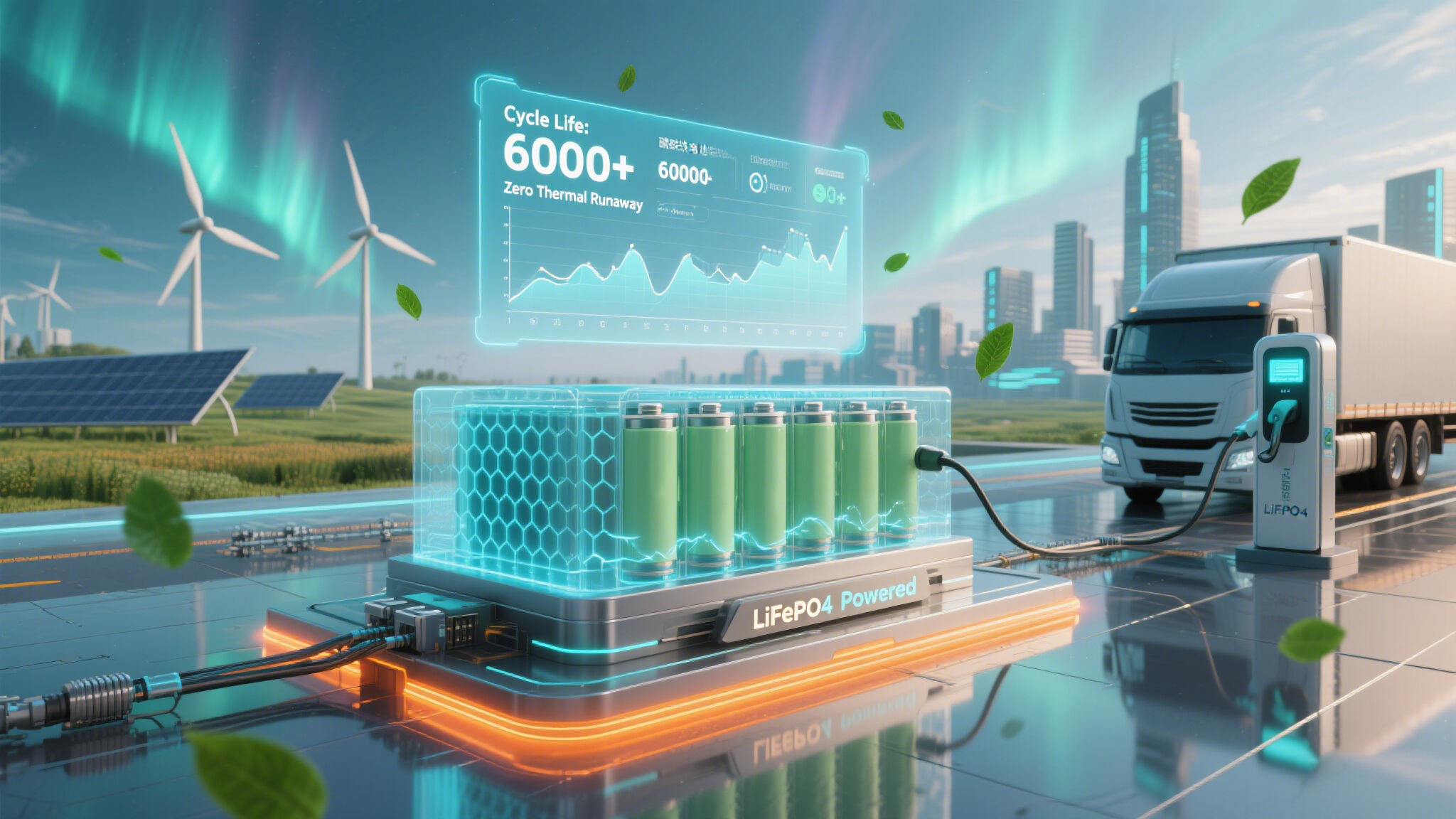As the globe moves towards sustainable energy alternatives, the usage of energy storage systems is becoming more crucial. With a plethora of advantages tailored to fit the global requirements for energy storage, Lithium Iron Phosphate (LiFePO4) batteries stand out as one of the most advanced technologies in this space. This article aims to discuss the benefits of LiFePO4 batteries and their applications along with the consequences these batteries could pose on energy storage in the future.
What do Lithium Iron Phosphate Batteries mean?
Lithium Iron Phosphate (LiFePO4) batteries are classified as lithium-ion batteries because they use iron phosphate as the active cathode material. This chemistry provides several advantages over traditional lithium-ion batteries, including enhanced thermal stability, longer cycle life, and improved safety. LiFePO4’s exceptional stability makes overheating and combustion far less likely, which is critical as energy storage solutions are expanded to diverse applications.
Key Benefits of LiFePO4 Technology
The longest lifespan of any of the lithium-ion batteries comes from LiFePO4. They have a cycle life of over 2000 charge-discharge cycles, enduring applications that require long-term dependability. LiFePO4 batteries also hold a stable voltage throughout the discharge cycle which is beneficial for consistent performance. This is useful in renewable energy systems where dependable energy is needed. In addition, LiFePO4 batteries do not contain heavy metals, making them an eco friendly and sustainable source of energy storage.
Uses of Lithium Iron Phosphate Batteries
LiFePO4 batteries can be used in various industries. They are primarily used in conjunction with solar power systems so homeowners and businesses can store extra energy produced during the day to use during peak times in the renewable energy industry. LiFePO4 batteries are becoming more common in the electric vehicle (EV) industry because of their safety and longevity, making them a reliable power source for electric cars. They're also used in uninterruptible power supplies (UPS) and in industry sectors that require enhanced reliability and performance.
The Contribution of LiFePO4 to Future Energy Needs
Lithium Iron Phosphate technology comes handy during this transition as it offers a low cost, safe, reliable, and environmentally friendly option for energy storage. As the planet moves towards a more electrified world, the shift is bound to increase in efficiency and safety standards. With policies promoting clean energy alongside advancements in technology and manufacturing processes, the cost of LiFePO4 Batteries within the Energy Storage industry is expected to decrease making them more accessible for wide applications. Additionally, ongoing research to improve the energy density and efficiency of LiFePO4 Batterieswill continue to strengthen its position in the Energy Storage industry.
Industry Trends and Future Outlook
The shift in the energy storage industry is highly fueled by an increasing adoption of renewable energy sources and the need for grid stability. The strain on services is sustainable with the use of Lithium Iron Phosphate batteries whose benefits are bound to increase across various domains. Furthermore, with governmental support to promote renewables and implement policies revolving around the clean fuels the demand for sustainable energy storage will further ascend. To summarize, the Lithium Iron Phosphate Technology alignment with the Global Sustainability goals offers hope in catering to the growing energy needs for modern society.

